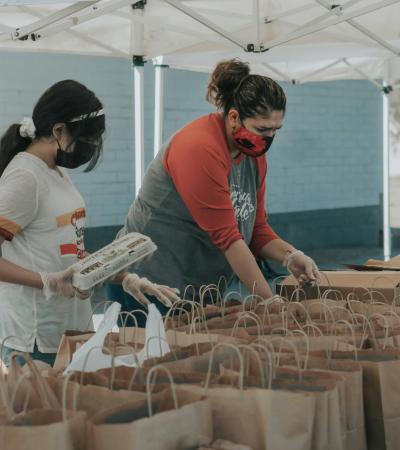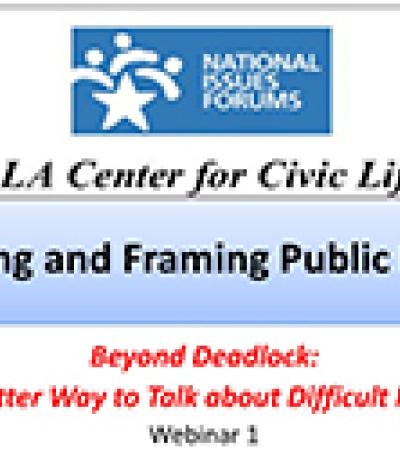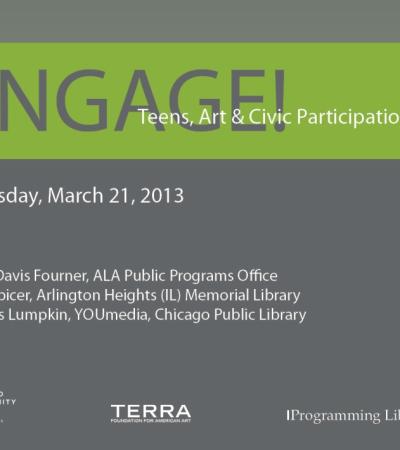The King County Library System (KCLS) serves 1.3 million residents in western Washington State over a 2,131-square-mile area that reaches from the Cascade Range to an island in Puget Sound. (The Seattle Public Library is a separate system, serving residents of the City of Seattle.) Communities in King County are diverse, dynamic places filled with busy people, burgeoning ideas, opportunities of all kinds, and, on occasion, civic and other issues that stir considerable interest and potential conflict. KCLS and its forty-eight libraries are uniquely positioned to act as catalysts to productive community conversations on issues of local interest through its new civic engagement initiative, Convey.
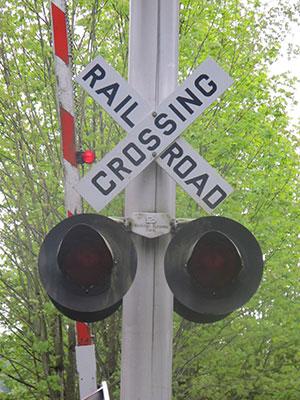
Why should the library actively foster community collaboration? Libraries believe in the open exchange of ideas. KCLS provides free and neutral access to a broad range of information. Within this role, KCLS already acts as a means for discovery and conversation. Free, open, and informed dialogue discovers common ground even in the case of differing viewpoints. Finding common ground fosters recognition and collaboration that results in stronger communities.
Convey builds upon the library’s traditional role as an unbiased information provider. Libraries can easily serve a role in large-scale, strategically planned civic engagement, especially when working in cooperation with other organizations and municipalities. Unlike other agencies that might convene public meetings, the library holds no preconceived notions about the outcome of efforts to bring the public into active discussion. Libraries provide a neutral forum where all parties can find reliable information and a place to air issues of concern in an unbiased atmosphere. Convey-type projects can take many forms, tailored to meet the needs of the community and the issue in question. Branch, outreach, and support activities can include displays, special collections, presentations, formal and informal debates, panel discussions, online forums, or even information fairs, whatever best facilitates open discovery and respectful discussion.
The first KCLS Convey project, conducted in summer 2012, was the creation of a wide-ranging conversation about the possible future uses of the Cross Kirkland Corridor, a former railroad right of way extending through the entire city of Kirkland, Washington. The City sought public input on the options for how to best use this long, narrow strip of land. Library staff in the Kirkland/Redmond Libraries cluster worked in tandem with the City of Kirkland and with the Kirkland Arts Center (KAC) to develop an approach to providing information and gathering wide-ranging public input in a way that was different from the usual meetings, which typically garner limited input from small and vocal constituencies. This first Convey initiative took three forms: an online public discussion via DialogueApp, a public charrette at the Kirkland Arts Center, and forms available in multiple locations in the City for anyone who wanted to submit a written suggestion.
The DialogueApp page on the Cross Kirkland Corridor (CKC) was launched in May via KCLS’s Convey site. Registered individuals had an opportunity to post ideas and suggestions for the corridor in a lively, sophisticated, and interactive online environment. DialogueApp allowed participants to rate and/or to comment on other’ postings and to find links to the most up-to-date information on the corridor. Dedicated laptop stations were provided at the two KCLS Kirkland branches to provide easy access to DialogueApp for those who had none.
DialogueApp proved quite effective, as it allowed people to participate in the debate from anywhere and at any time. More than 120 individuals did so, providing 244 informed and wide-ranging comments and reactions. Ideas given various ratings by DialogueApp participants included remarks about affordable housing, benches, bike trails, jogging paths, public art, public safety, trains, trees, and storm water. Written suggestion forms were also offered at the two Kirkland libraries, at Kirkland City Hall, at Kirkland Arts Center, and at the Kirkland Arts Center Store. More than thirty written forms were turned in.
In tandem with the library initiative, an in-person interactive community charrette was held at the Kirkland Arts Center on July 12, 2012. A panel of architects, urban planners, and a game designer made presentations that prompted the audience to further lively conversation. More than eighty people attended, including residents and elected officials.
As a neutral third party, KCLS’ role was to simply gather and disseminate information. It was necessary from the beginning to make clear that the agreement between the City and the Library was not a formal one in order to maintain the neutrality of the work done by the Library. The City and the Kirkland Arts Center worked more closely on hosting the charrette, but this still mandated mutually agreed upon language in order to make clear to the public that KCLS and the Kirkland Arts Center were neutral parties in the discussion, and would be providing all public suggestions to the City without filtering same. This involved a lengthy exchange of emails between and among branch staff, organizational community relations staff, multiple City departments, and the Kirkland Arts Center, until an agreement on the language that everyone should use in promotion was reached.
The entire public input from all sources was aggregated by KCLS and presented without any alteration to the Kirkland City Council in September 2012, along with a timeline and a summary of the project. KCLS took no role in evaluating or giving preference to any suggestion, submission, or proposal. The City has made all of the input from the Convey project—all public suggestions, ratings, and comments—available from the City Cross Kirkland Corridor page.
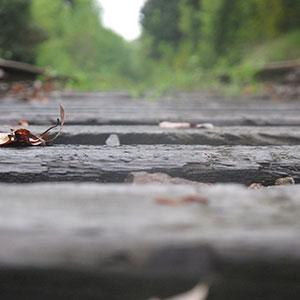
In 2013, the Library Cluster Managers who manage multiple branches in eleven assigned areas of King County will explore many possibilities for Convey projects. Cluster Managers and their staff will plot potential projects as part of fostering their continuing relationships with city government officials, Library Advisory Boards, legislators, and other regional or political leaders in their area. The emphasis will be given to projects that address broad issues that affect an entire community rather than projects that align with narrow concerns that might affect only a small segment of the population.
How can other libraries deliver on a larger civic engagement project like Convey? Think about the role of the library in the community, as catalyst to informed conversation. Use staff work and contacts in the community, and reference resources to uncover issues that could be addressed by a cooperative plan. Find natural partners and imagine the target audience. Wrap the proposal to any partner around their regular calendar, suggesting an event far enough in the future and/or around their natural interests. Expect delays for every new organization brought into the project. Plan well in advance. Observe internal deadlines and limitations for all of the organizations involved. Understand all organizational values and missions. Be clear with one another about mutual expectations. Remember to use in the branch, out of the building, and online methods to support your project goal. Projects like Convey are a natural means to strengthen ties with other agencies and organizations that serve your community.

